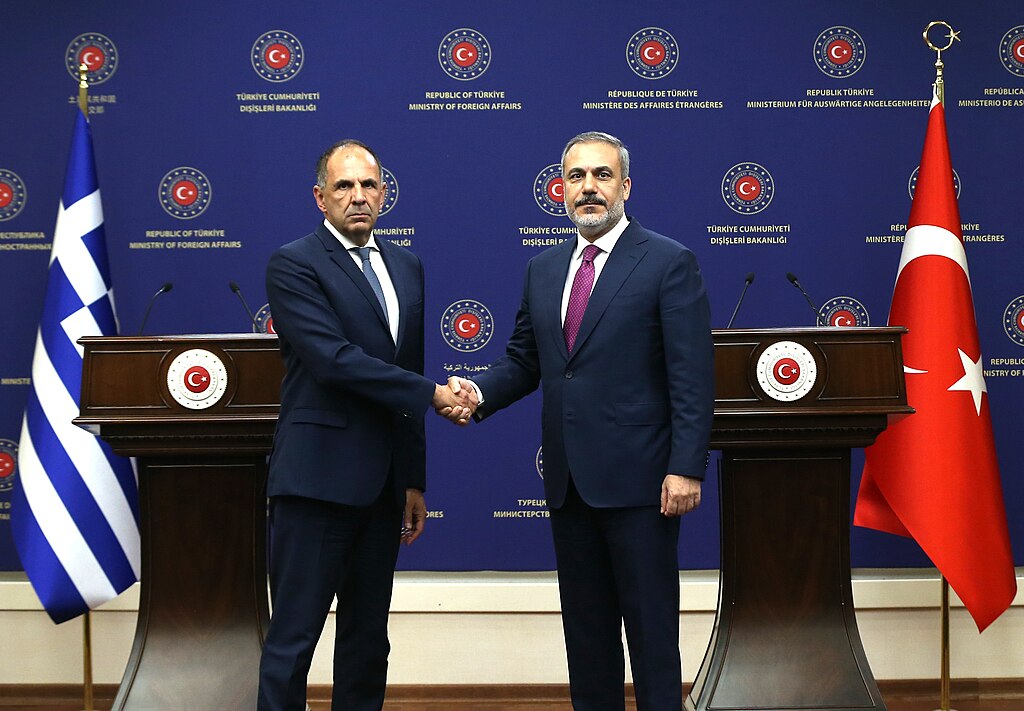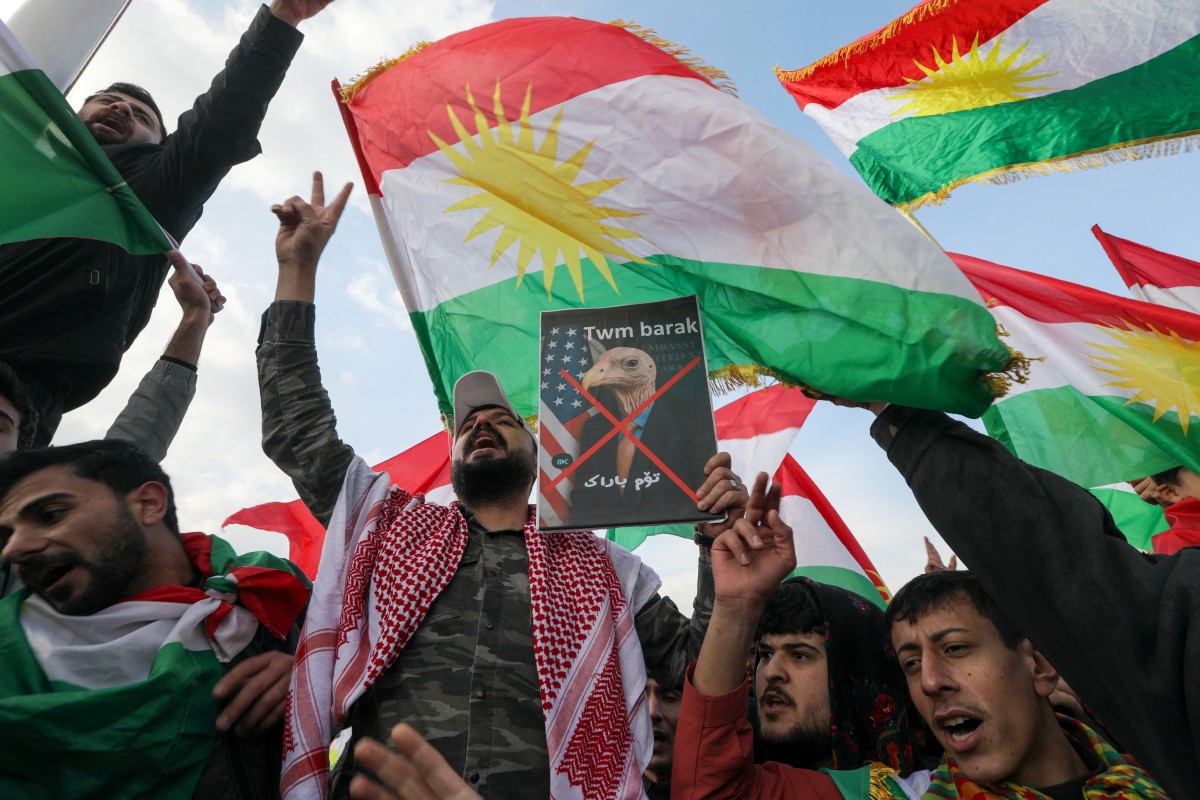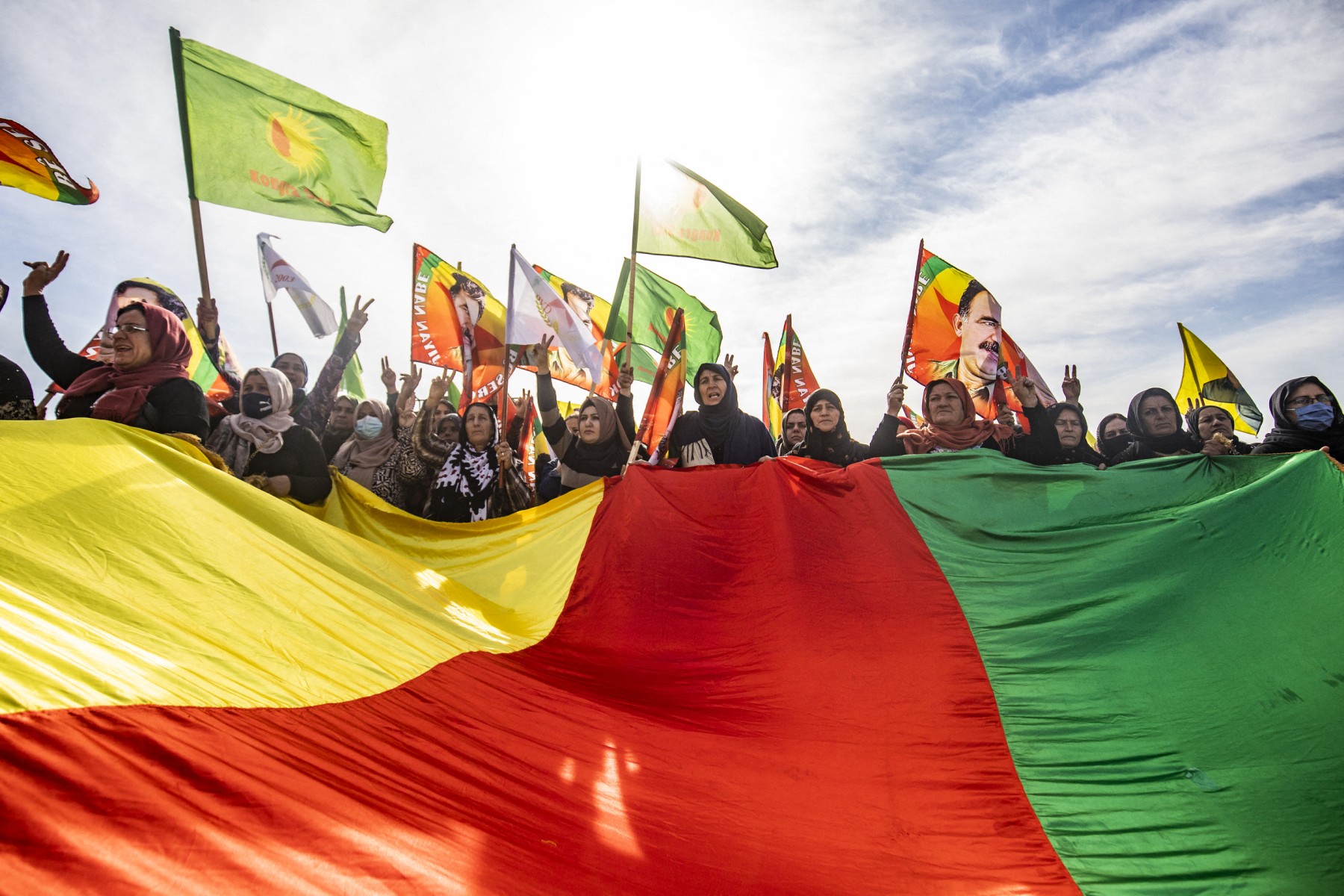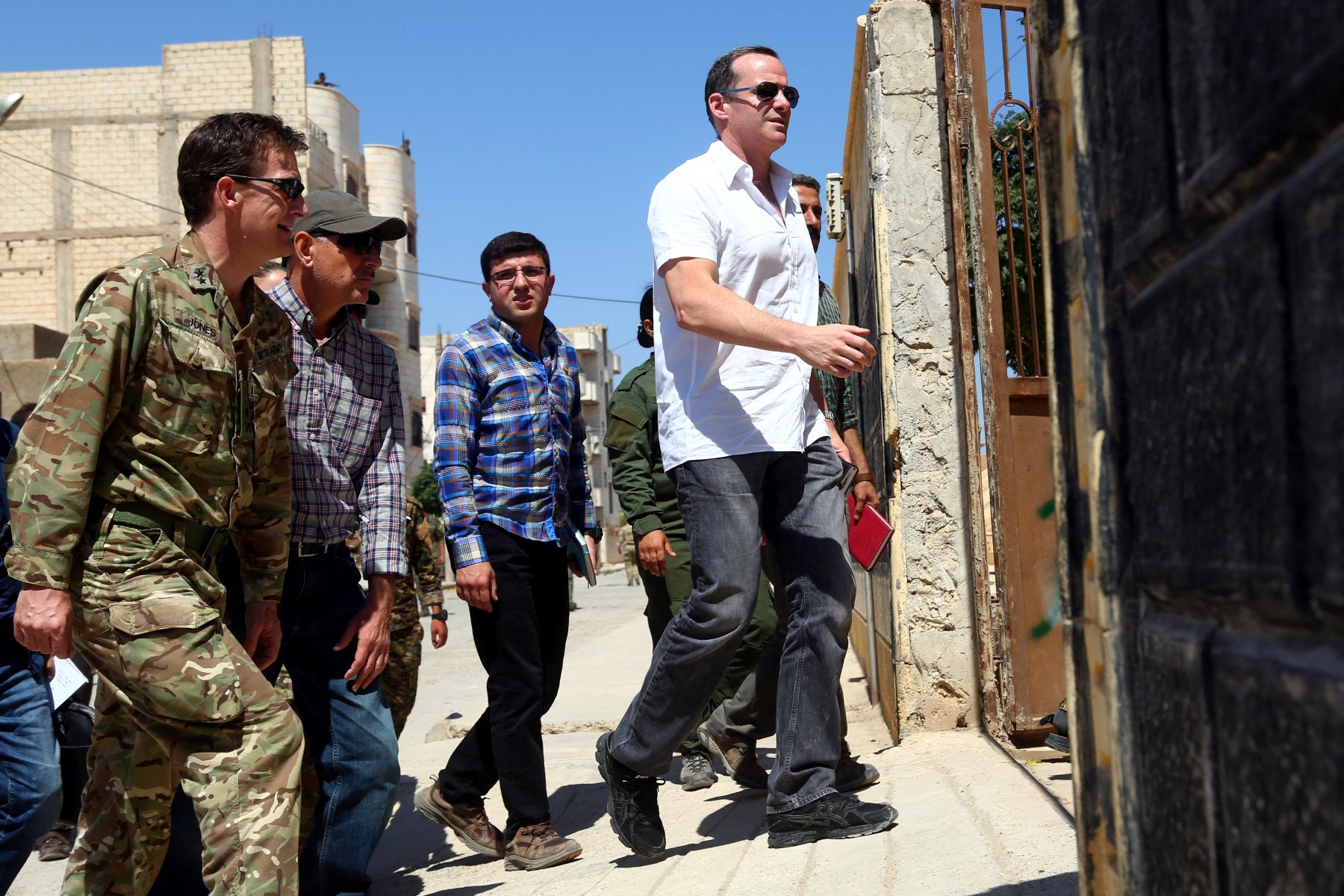The Changing Politics of Turkey’s Foreign Policy Orientation

epa10841744 Turkish Foreign Minister Hakan Fidan (R) and Greek Foreign Minister George Gerapetritis (L) shaking hands during a press conference after their meeting in Ankara, Turkey, 05 September 2023. EPA/NECATI SAVAS
Meeting of Greek Foreign Minister George Gerapetritis with Turkish Foreign Minister Hakan Fidan in Ankara | Picture Credits: Greek Ministry of Foreign Affairs / Wikimedia Commons (CC BY-SA 4.0)
On 18 September 2025, Devlet Bahçeli, the leader of the Nationalist Movement Party (MHP) and President Recep Tayyip Erdoğan’s main ally since summer 2015, called for Turkey to form an alliance with Russia and China as an alternative to its close alliance with the U.S. and the Western bloc. The statement came on the eve of Erdoğan’s visit to the U.S. and after the Turkish government made repairing Turkey’s relations with the West one of its main priorities after Erdoğan’s re-election in May 2023. The statement raised questions about a potential split between Erdoğan and his domestic ally due to their competing visions for foreign policy orientation, and whether such an alliance, if attempted, was viable or realistic. Addressing these questions requires a brief look into the ideas that have been shaping Turkey’s foreign policy since the Justice and Development Party (AKP) came to power in 2002.
The AKP’s foreign policy during the 2000s
The ‘zero problems with neighbours’ foreign policy that it pursued was guided by the objective of turning Turkey into an effective international actor
The first AKP government took office in 2002, and it closely followed Turkey’s pro-West foreign policy orientation, shaped by the secular republican or Kemalist elite during the early decades of the republic. The AKP policy-makers made improving Turkey’s relations with the European Union (EU) its main foreign policy objective, and emphasised Turkey’s close historical links with Europe and the Middle East,describing the country as a bridge connecting the West to the East.
Once the AKP consolidated its dominant position in Turkish politics after the 2007 election, it started a process of reorienting Turkey’s foreign policy. The ‘zero problems with neighbours’ foreign policy that it pursued was guided by the objective of turning Turkey into an effective international actor, and shaped by the ideals of political dialogue, economic interdependence, and cultural co-existence. It cultivated an image of Turkey as a rising global power of the 21st century and a self-assured and prosperous regional power that had a global mission to fulfil.
The AKP government, during the late 2000s and early 2010s, initiated and deepened dialogue with neighbouring states, such as Syria and Iraq, aimed at resolving the enduring issues that created tensions in bilateral relations. Turkey mediated in conflicts, including between Syria and Israel, and took part in the formation of international organisations such as the Organization of Turkic States and the United Nations Alliance of Civilizations to promote greater religious dialogue. These actions tried to increase Turkey’s influence through soft power instruments and portrayed Turkey as a model for other Muslim majority countries to follow.
The ‘Arab Spring’ and Turkey’s search for greater influence in the Middle East
The AKP government interpreted the Arab Spring protests in 2011 as the perfect opportunity to assert Turkey’s ambition to shape the Middle East according to its vision. It took quick steps to form close relations with the Muslim Brotherhood-affiliated Islamist groups in Syria, Egypt, Libya, and Tunisia, and became a vocal supporter of political transformation in the region.
However, the removal of the Islamist government in Egypt in a coup d’état in 2013 and the increasing violence in the conflicts in Syria and Libya meant the political developments on the ground in the Middle East started to quickly diverge away from the norms of political dialogue and economic interdependence that characterised the ‘zero problems with neighbours’ foreign policy. The early 2010s were also a period in which the AKP’s dominance in Turkish politics faced increasing challenges from domestic actors, culminating in the nationwide Gezi Park protests in the summer of 2013.
Between 2013 and 2015, the AKP government also faced a stronger challenge from the opposition political parties on grounds that its foreign policy took on an ideological character and was fuelling sectarianism and violence in the region. Unable to provide a convincing response to these challenges, the AKP government increasingly relied on Islamist symbols and discourse to defend its actions. For example, Erdoğan popularised the use of the ‘Rabia Sign’ associated with the protests in Egypt against the overthrow of the Islamist government, and vowed to pray in the Umayyad Mosque in Damascus. Also in that period, the AKP government initiated a dialogue process with the Kurdistan Workers’ Party (PKK) but increasingly started to frame the rising influence of the Kurdish forces in Syria as a national security issue. The recourse to Islamism and the nominal commitment to peace with the Kurds were not sufficient for the AKP to retain power— it lost its majority in the parliament following the June 2015 elections.
The AKP’s new foreign policy after 2015
From the mid-2010s onwards, AKP officials increasingly made references to the idea of building a ‘new Turkey’ and elevating Turkey’s status to a world power.
Talks to form a coalition government did not bear fruit, and new elections were called for November 2015. These took place in a political context shaped by rising violence from the terror attacks carried out by the Islamic State that mainly targeted the pro-Kurdish peace network, and the escalation of the military conflict in the urban centres of the Kurdish-majority regions. During the election campaign, the AKP indicated that it was abandoning the dialogue process and vowed a harsh response against the PKK and the Syrian Kurds. The AKP’s turn to nationalism served as the base for a closer alliance with the MHP and different nationalist cliques in the military and bureaucracy, accelerating the AKP’s turn towards authoritarianism and the centralisation of power in the hands of Erdoğan.
From the mid-2010s onwards, AKP officials increasingly made references to the idea of building a ‘new Turkey’ and elevating Turkey’s status to a world power. Recourse to Turkish nationalism proved successful for the AKP and served as the glue binding the conservative-nationalist political bloc that Erdoğan and Bahçeli had created.
In 2018, the AKP government started to use the label ‘enterprising and humanitarian’ to officially describe its new foreign policy. From the beginning of 2024 onwards, however, it started to use the designation ‘National Foreign Policy in the “Century of Türkiye”’, while the contents of the policy remained more or less the same.
This policy seeks to realise the objectives of turning Turkey into an autonomous military and naval power capable of advocating its national interests within a multipolar global order and able to form mutually beneficial relations with different international and regional powers. It calls for an end to Western interventions in the Middle East and a greater role for Muslim states in addressing the conflicts and crises in the Islamicate world.
In the past decade, Turkey formed closer military and political ties with Russia, which included the purchase of the Russian S-400 missile-defence system, which led to the U.S. imposing sanctions on Turkey and ejecting it from the multinational consortium for building the F-35 fighter jets. The AKP government accelerated the exploration of oil and gas in the Eastern Mediterranean beyond Turkey’s territorial waters throughout the early 2020s, which increased tensions with the EU and its member states of Greece and Cyprus.
Erdoğan’s overtures to Turkey’s Western Allies since 2023
However, since Erdoğan’s re-election as president in May 2023, greater efforts have gone into improving Turkey’s relations with the EU and the U.S. Turkey has been attempting to purchase Eurofighter jets from Europe and hopes to become a part and beneficiary of the EU’s €150 billion Security Action for Europe (SAFE) program. Turkey’s participation has received support from most EU states but has so far been vetoed by Greece. In last September, Erdoğan discussed with Trump the possibility of purchasing F-35 fighter jets. Turkey’s recent overtures to Europe and the U.S. show the centrality of the Western bloc as a source of high-tech weaponry and importance as a close economic and political partner.
Balancing between the international powers to advocate for Turkey’s interests more effectively is one of the main pillars of the Erdoğan government’s foreign policy, and Turkey is committed to building a multipolar world order. Therefore, its efforts to deepen ties with a range of international and regional powers, including Russia and China, will continue. Turkish political actors, including Erdoğan, have been talking about the possibility of Turkey joining the Shanghai Cooperation Council as an alternative to EU membership since 2013 and the matter surfaces time and again in Turkey’s domestic politics. However, in reality, it is difficult to imagine Turkey foregoing its close ties with Europe and the Western bloc in favour of a closer alliance with Russia and China any time soon.
Cengiz Gunes
Cengiz Gunes has been teaching politics and international relations at the Open University as an Associate Lecturer since 2010. Between 2022 and 2024, he was a MSCA Postdoctoral Fellow in the Institute of Political Science at the University of Tübingen, Germany. His research examines the transformation of Turkey’s foreign policy since 2002. His research interests include Turkish foreign policy and domestic politics, Poststructuralist Discourse Theory, Nationalism, and Kurdish politics. To date, as author or co-editor, he has published five books, and his analysis of Kurdish and Turkish politics has been published in several peer-reviewed journals, including New Left Review, Nationalities Papers, Ethnopolitics, and Journal of Balkan and Near Eastern Studies.



